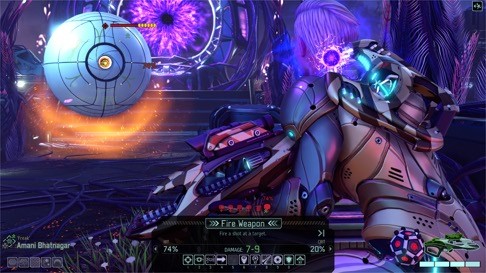
Game review: XCOM 2 is as tense as it is addictive
When characters die, they're dead for good – which is part of what makes this turn-based alien invasion troop-management game the best of the year so far

Firaxis Games

If you’re a gamer, constantly hitting the reset button is a way of life
I had forgotten that, until XCOM 2 (available for PC, OS X and Linux) took the option away from me.
I’ll admit “hitting the reset button” is a bit of an old-fashioned idea, especially since modern games simply require you to load the last checkpoint. But the result is the kind of wish fulfilment the video game industry was built on. All your mistakes and regrets instantly vanish and the slate is wiped clean, presenting endless opportunities to do better next time. If only life were as simple as video games.
Despite all the careful planning and multiple save files, my military campaign to save earth from an alien invasion in XCOM 2 isn’t without casualties. As a military commander, I’ve lost four valued soldiers over the first dozen hours of my campaign.
Unlike most video games, however, I can’t bring those soldiers back – even on the easiest difficulty setting. I could lose hours of my life and reset time to the minutes preceding their death, but the turn-based nature of XCOM 2 purposefully makes it too much of a hassle. Resetting the game to the beginning of the mission can cost you an entire day’s work, with no guarantee things will turn out better in the second go-around.
Once you’re dead in XCOM 2, you’re dead for good. And it’s those kind of heavy consequences that make it the best game of the year so far.
SEE ALSO: Dragon’s Dogma is still a deeply enjoyable, totally immersive experience
A game this steeped in troop management and strategic positioning should come with a warning label. Those who crave only fast action and instant gratification need not apply.
To be honest, if I hadn’t played through and fallen in love with the previous game in the series back in 2012 – XCOM: Enemy Unknown – I likely would have been too intimidated to give this one a try. For all its strengths, XCOM 2 makes the same mistake Fallout 4 made last year, assuming everyone is already familiar with the mechanics of the series.
Between clearing three-and-a-half years of gaming cobwebs out my head and trying to understand all the new mechanics, it took me five or six hours just to figure out what I was doing. With almost no tutorial to speak of, newbies to the franchise would be wise to either purchase a comprehensive strategy guide or play through the previous game. Trust me, it’s worth the effort.

It’s a classic genre rooted in board games, and only looks silly when you have two opposing soldiers standing face to face without making a move. Just like a board game, neither character can move until it’s their turn.

Thankfully for series veterans, the nuts and bolts of the on-ground combat remain mostly the same. Set snipers on top of buildings for cover fire, send in speedy reconnaissance troops for up-close damage, and position everyone else for counter-attacks and support. It’s kind of like setting up a classic chess defence, where you move the pawns up and flank them with the knights and bishops.
The real fun starts when those plans get shredded by alien ambushes that leaves everyone scrambling to stay alive. Since each individual attack is assigned an odds percentage based on distance, positioning and cover, there’s usually a chance an enemy attack won’t hit you – and vice versa.

As a military commander in XCOM 2, the men and women under your control rely on your judgment and a bit of luck. Many of them stay with you through the game’s 40- to 60-hour running time, continually gaining experience and new skills with each battle. Sending out the strongest and most experienced troops makes missions easier, but it also puts the entire rebel effort at risk if they die.
It’s absolutely horrifying to watch an alien take a potshot at a soldier barely clinging to life, even if that shot only has a 20 per cent chance of hitting. With the planning and movement already done (for that turn), all you can do is grit your teeth and watch.

If XCOM 2 were a job, it would be a pressure cooker – the kind of employment I would recommend to someone half my age with twice the motivation. But as a game, it’s an endlessly addicting meditation on the responsibilities of command, simulating the consequences of failure as completely as an entertainment product will allow.

Ironically enough, the toughest barrier to defeating the aliens exists in real life. XCOM 2 is an extremely attractive game, but the system requirements to play it may be too high for older computers. My ageing Alienware laptop can barely handle the game on the lowest graphic settings, resulting in massive frame rate drops that wouldn’t be acceptable on the PlayStation 4 or Xbox One. Since the first game in this reanimated series was eventually released on the PlayStation 3 and Xbox 360 after an exclusive PC run, I can only hope the sequel will see similar treatment on next-gen consoles in the near future.
Don’t wait if you don’t have to, though. XCOM 2 is packed with so many interconnecting systems and mechanics that it would be fascinating as a board game. As a video game, it’s even better.
Tribune News Service
